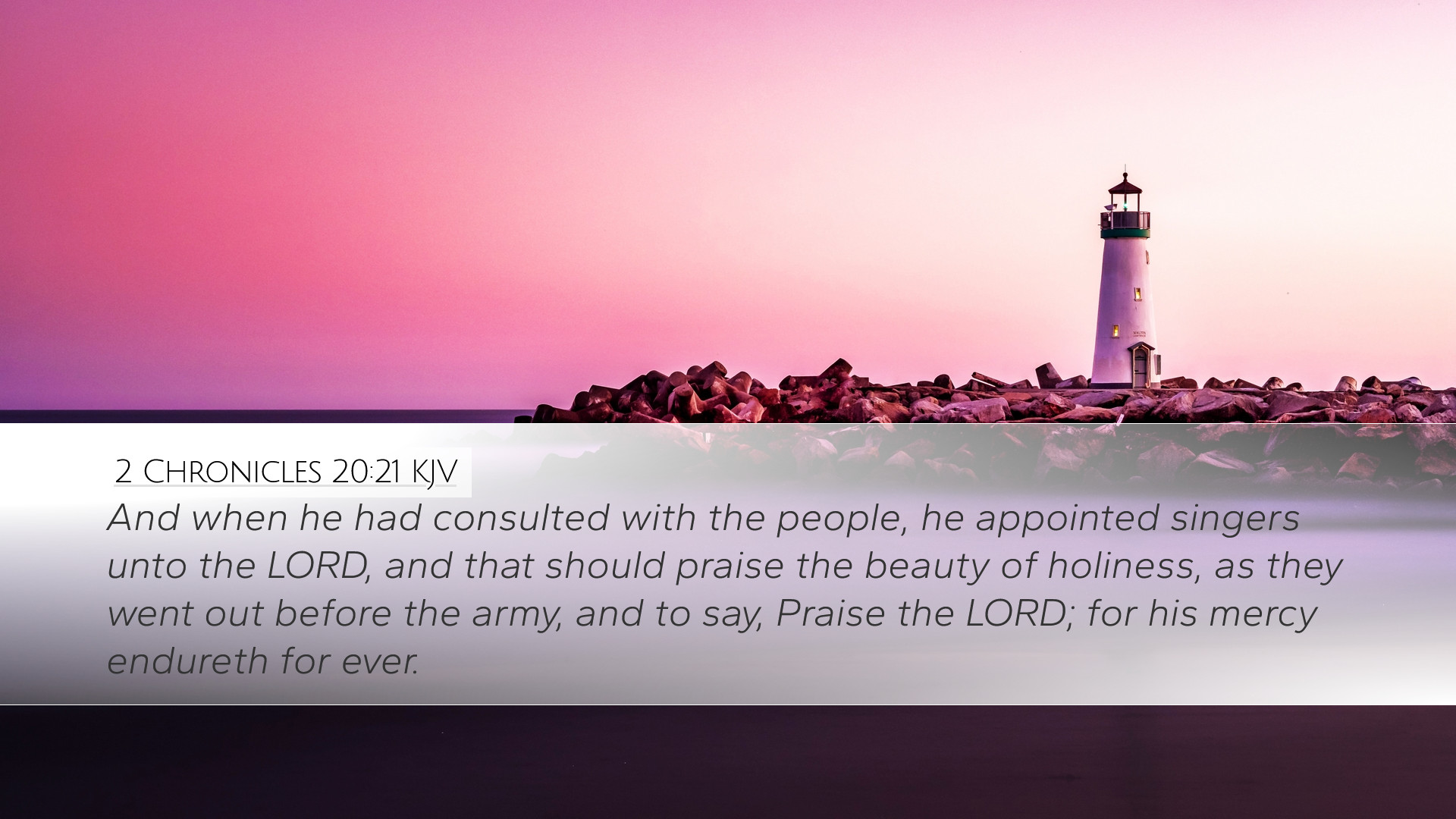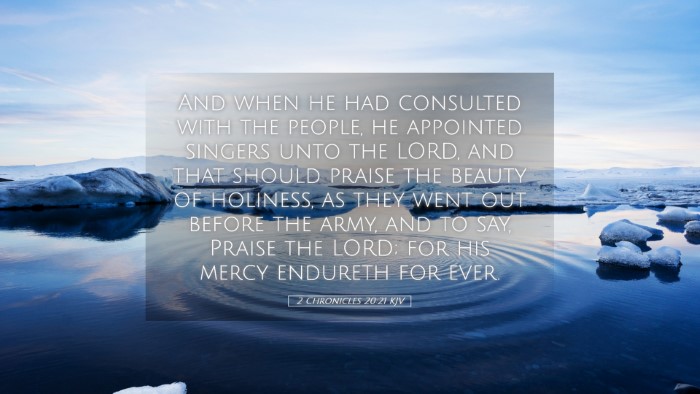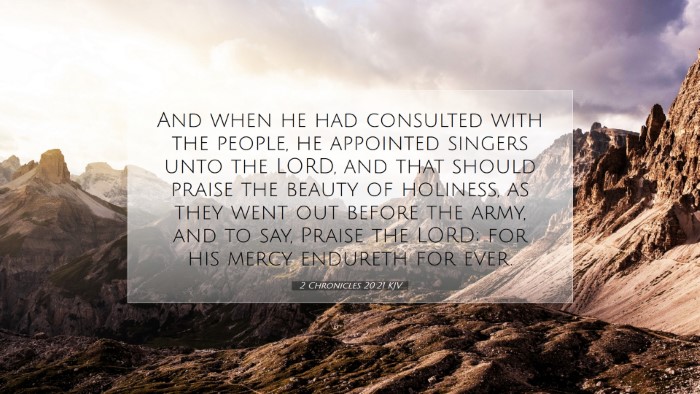Commentary on 2 Chronicles 20:21
Verse: "And when he had consulted with the people, he appointed singers unto the Lord, and that should praise the beauty of holiness, as they went out before the army, and to say, Praise the Lord; for his mercy endureth forever." (2 Chronicles 20:21)
Introduction
This verse is a profound reflection on the power of worship and praise in the context of battle and conflict. It reveals the divine strategy of King Jehoshaphat as he faced overwhelming odds against a coalition of enemy armies. The act of appointing singers to lead the way in praise encapsulates a key theological tenet that reverberates through the entire narrative of Scripture: the effectiveness of faith expressed in worship.
Commentary Insights
1. The Context of Worship in Warfare
Matthew Henry emphasizes that Jehoshaphat, upon receiving the prophetic word of victory, took a remarkable step not for military tactics, but for worship. This decision illustrates the principle that the battle belongs to the Lord, as stated throughout Scripture (1 Samuel 17:47, Psalm 44:6-8).
2. The Role of the Community
Albert Barnes notes the importance of communal involvement in worship. Jehoshaphat consulted the people and engaged them in the process of declaring God's mercies. This highlights the necessity of corporate worship where the body of believers collaborates in glorifying God, especially in times of distress.
3. The Nature of Praise
Adam Clarke remarks on the specific focus of the singers’ praise: "the beauty of holiness." This phrase not only speaks to the nature of God’s holiness but also implies that true beauty is found in living in accordance with God's character. As they praised God’s mercies, this served as both a reminder of His past faithfulness and a declaration of trust in His future provision.
4. The Priority of Praise
In the face of impending danger, Jehoshaphat's prioritization of praise over military might reveals profound faith. Matthew Henry indicates that such actions reflect a deep-seated trust in God's sovereignty and deliverance interventions. As the singers went before the army, they exemplified a truth that worship precedes victory in God’s kingdom.
5. Theological Implications
This verse serves as a case study in theology regarding the nature of God’s mercy as everlasting. Albert Barnes asserts that the proclamation of God's mercy is central to our understanding of Him. It reminds believers that despite circumstances, God's fidelity to His covenant promises persists, encouraging the faithful to rely on His enduring character.
6. Practical Applications for Today’s Believers
- Embrace Worship: Like Jehoshaphat, individuals and congregations are encouraged to prioritize worship, especially during difficult times. Recognizing the sovereignty and goodness of God in praise can transform one’s perspective on trials.
- Community Engagement: Foster a culture of communal worship where believers support one another through acts of worship, gathering to pray, sing, and share testimonies of God’s faithfulness.
- Proclaim God’s Mercy: Make it a practice to proclaim and remember the mercies of the Lord. Such declarations encourage faith and provide reminders of God's past interventions and promises.
- Faith in Action: Reflect on the singers’ role in battle, signifying that acts of faith often require stepping into the unknown, trusting God to fulfill His promises as they walk forward in obedience.
Concluding Thoughts
The narrative found in 2 Chronicles 20:21 serves as an inspiring challenge for modern believers to recognize the transformative power of praise in our lives. In times of crisis, worship not only honors God but also aligns our hearts with His will, reminding us that true victory is rooted in faith and trust in Him. Recognizing God’s beauty and holiness allows us to engage in spiritual warfare with confidence, knowing His mercies endure forever.


